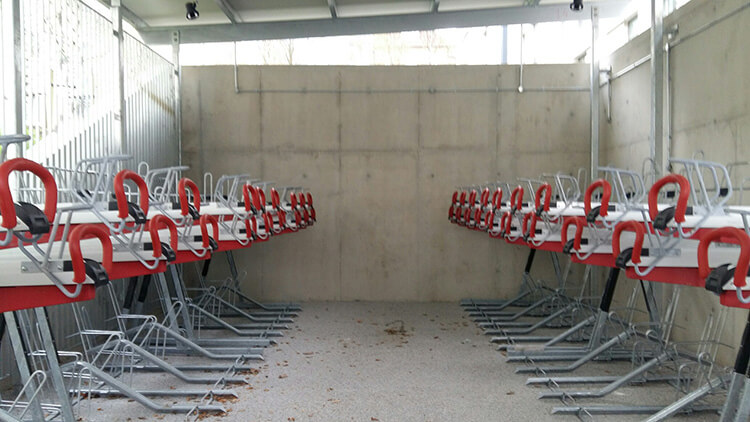At the University of Roehampton, we are committed to promoting sustainable travel options for students, staff, and visitors. By choosing environmentally friendly travel methods, we can collectively reduce carbon emissions, alleviate congestion, and improve air quality on campus and in the surrounding community.
Cycling


Cycle Parking and Showers
There are a total of 504 cycle parking spaces across campus, including storage near Elm Grove at Digby Stuart College.
Shower facilities are available at all colleges for staff who cycle or run to work.
Cycle to Work Scheme
A Cycle to Work Scheme is available as a staff benefit through HR.
Through our association with the Cycle to Work Scheme, any member of staff is eligible to purchase a bicycle and accessories, including locks, clothing, and helmets through a salary sacrificing instalment option. Using this scheme positively impacts on the burden of buying a bicycle at upfront costs whilst also contributing to better health and wellbeing through regular exercise.
Cycling has a broad array of benefits, to both our employees and the environment, some of which include:
- Lower air pollution and greenhouse gas emissions
- Reduced stress and improved relaxation
- Gentle, low-impact physical activity
- Alleviation of anxiety and symptoms of depression
Read our A Guide to Cycling at Roehampton blog post.
Business Travel
We use the corporate travel agent Clarity BT for members of staff to book business travel (flights, trains taxis) and hotels through. Clarity sends us a report each month which includes the associated carbon emissions for each journey or hotel stay. This allows us to report on our Scope 3 emissions associated with travel easily and develop targeted communications to try and reduce these associated emissions.
Air Travel
In the 2023/24 academic year, air travel at Roehampton generated nearly 400 tonnes of carbon dioxide equivalent (TCO₂e). To put this in perspective, offsetting this would require 6,500 tree seedlings growing for 10 years to absorb the same amount of carbon.
Stats derived from Greenhouse Gas Equivalencies Calculator | US EPA.
We encourage our staff to strive to reduce air travel whenever possible by embracing alternatives like virtual meetings. However, when travel is unavoidable, making sustainable choices can significantly lower our carbon footprint. For instance, flying economy instead of business class can cut emissions by up to 50%, as business class seats have a larger carbon impact per passenger. Similarly, choosing rail travel over air travel is a more sustainable option – traveling from London to Paris via the Eurostar produces up to 90% fewer emissions than flying. Small changes in how we travel can lead to meaningful reductions in our carbon emissions.
